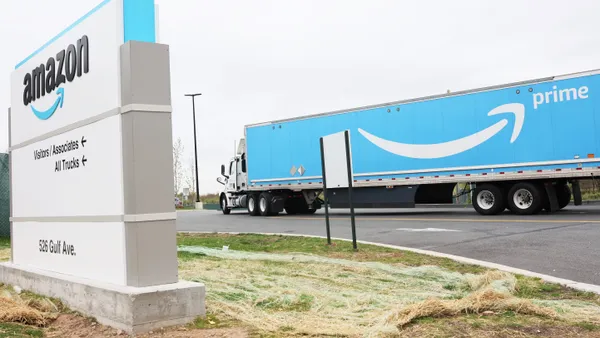Dive Brief:
- Substantial growth in freight volumes will be a tall order going forward without "significant investments in people, equipment, and technology," according to the Cass Freight Index.
- Both shipments and expenditures fell slightly in October from the previous month but maintained robust year-over-year growth, keeping the pricing power in the hands of carriers. Shipments were up 6.2% from October 2017. Expenditures, measured as total spending on freight for the month, grew 12% year-over-year.
- Technology will keep this extended period of growth, despite finite capacity, from causing long-term inflation in freight markets, according to Cass.
Dive Insight:
Freight shipments are moving along nicely according to the Cass Freight Index, but analysis from founder and managing partner of Broughton Capital, David Broughton, illustrated what appears to be a growing divide among economists about a common side effect of good economic times: inflation.
Last week, a new Bain & Company report warned that after years of relatively flat costs and subsequent margin-boosts, supply chain managers are contending with inflation, a foe not seen since roughly 2011. Indeed, CEO's and CFO's have been lamenting rising transportation costs all year in their earnings calls with analysts.
Broughton said not to worry even though both the Cass Truckload Linehaul Index and the Cass Intermodal Price Index hit all-time highs in October.
Demand is still exceeding supply, which keeps freight providers in the power seat for pricing. Carriers are working to ease the capacity crunch and Broughton is confident that this work will bring prices back to reality.
"To the extent that pricing is materially exceeding the marginal cost of creating that capacity, market participants are investing heavily in the exact activities which kill pricing power in commodity markets," he wrote in the report.














